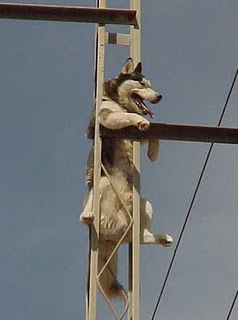TT 2 MID TERM
REVIEW ANSWER KEY
01.
MATCH THE COLUMNS
(7)
(13)
(4)
(5)
(6)
(2)
(9)
(1)
(3)
(15)
(14)
(11)
(10)
(12)
(8)
2. COMPLETE THESE CONDITIONAL SENTENCES:
1. would have phoned
2. would go
3. wouldn’t have gotten
4. would let
5. will visit
6. would have finished
7. hadn’t been
8. had known
9. works out
10. had
03.
COMPLETE WITH THE CORRECT FORM OF VERBS:
11. had
known
12. would
have bought
13. could
have gone
14. could
have died
15. could
have gone out
16. should
have studied
17. should
have woken up
18. should
have already gone
04.
CORRECT THESE SENTENCES:
01. SHOULD
HAVE GONE
02. WE HAD
PLAYED
03.
HELPFULLY
04. PLAYING
05.
HYSTERICALLY
06. BETTER
STUDY
07. WOULD
HAVE VISITED
08. NEITHER
BOB NOR MIKE
09. AND
NEITHER
10. NEITHER
DID LEROY
05.
COMPLETE THE SENTENCES WITH THE PHRASES BELOW
01. flavor
02. draw
03.
flawless
04. close
call
05. sirens
06. got
over
07. to top
it off (?????)
08. get
away
06. MAKE
UP SENTENCES USING:
NOTE: HERE
ARE SOME EXAMPLE SENTENCES YOU COULD HAVE WRITTEN
01.
Most
of – Most of the people I invited turned up.
02.
Famed
– Las Vegas is famed for its casinos.
03.
To
catch someone doing sth – I caught Bob kissing Julie
behind the church.
04.
To
come down with – I think I am coming down with flu.
MARK THE
BEST OPTION:
1-b
2-a
3-d
4-a
5-c
6-a
7-b
8-a
9-c
10-b
COMPLETE
THE FOLLOWING DIALOGUES:
1)…. wouldn’t
have missed so many classes.
2)….teach
him
3)….I
twisted my ankle going down the stairs.
C- MAKE
UP A SENTENCE FOR EACH OF THE FOLLOWING WORDS:
NOTE: HERE
ARE SOME EXAMPLE SENTENCES YOU COULD HAVE WRITTEN
1)
CHAIN
àShe has built up a chain of 180 bookshops across the country.
2)
PACE
àI don't like the pace of modern life.
3)
SLIGHTLY
àShe's slightly taller than her sister.
4)
TO
NAME AFTER àPaul was named after his grandad.
5)
INHABITANT
àCatanduva has fewer inhabitants than Rio Preto.
6)
TO
REMAIN àThe bank will remain open while renovations are carried out.
7)
TO
LAY UP à Jane is laid up with a bad cold.
8)
FLAWLESS
à That was a flawless performance!
9)
TO
RUSH àI rushed up the stairs to find a phone.
10)
SCRUFFY
àThey live in a rather scruffy part of town.
11)
AROUND
THE CLOCK àDoctors and nurses worked
round the clock to help those injured in the train crash.
12)
TO
APPLY àTim's applied to join the police.
13)
TO
SKIP àI'm trying to lose weight, so I'm skipping (=
not eating) lunch today.
14)
STAFF
àThere are over a hundred staff in the company.
15)
TO
SLAM àClose the door carefully, don't slam it.
16)
LEAKY
àThe roof of my house is leaky.












